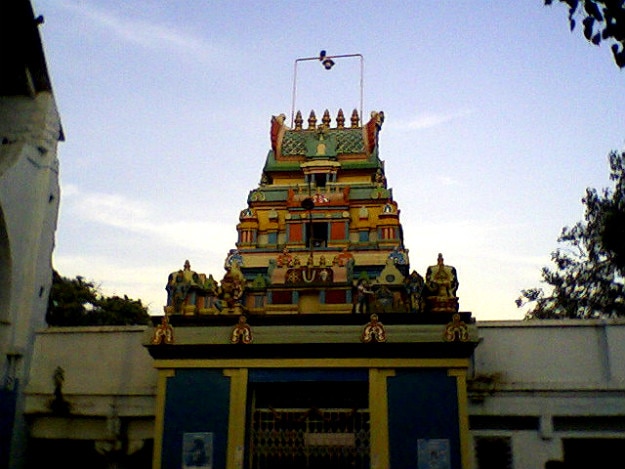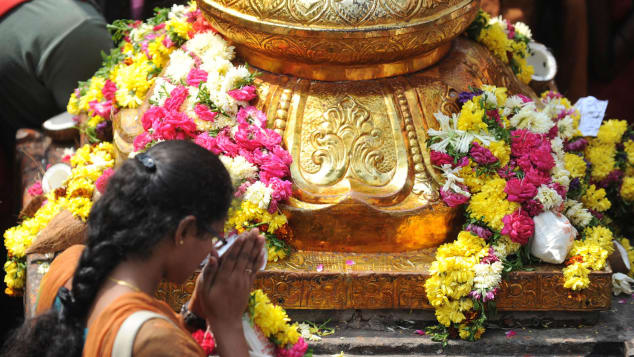Have we forgotten all the Gita lectures?
A Hindu devout cannot forget either Gita, Mahabharat or Ramayana or other Puranas...
It is pure devotion and only pure hearts can understand or realize and attain
One such example of Sabari
Shabari was a girl from a tribal village.[SUP]
[1][/SUP] According to Krishna Dutt ji she was seeker of knowledge and wanted to know the meaning of Dharma. After days of traveling, she met
Sage Matanga at the foot of the Mountain
Rishyamukha and accepted him as
guru, serving him with devotion.[SUP]
[1][/SUP] When her guru Matanga was about to die, Shabari— now an elderly lady— stated that after serving him throughout her life, she now sought to reach for herself the same "abode of peace" which Matanga reached.[SUP]
[1][/SUP] Thereupon, the sage said that by the virtue of her
seva (service), Lord Ram shall give her
darshan and asks her to wait for his arrival. Saying thus, the sage sitting in lotus posture attains
Mahasamadhi. As per her guru's words, Shabari waits for the arrival of Ram.[SUP]
[1][/SUP]
Everyday Shabari would go out of her
ashram, with the help of a walking stick and pluck berry fruits for Lord Ram. She would pluck a fruit, first taste it, and if it was sweet she would put it in her basket and discard the bitter ones. She wanted to give the good and sweet fruits to Ram.[SUP]
[2][/SUP] The thought never came to her that she should not taste it before it was offered to a deity. Traditional writers use this narrative to indicate that in
bhakti, faults are not seen by the deities. Thus collecting a few fruits, Shabari went back to the
ashram and eagerly anticipated Lord Ram's arrival.[SUP]
[2][/SUP] Shabari is commonly used as a metaphor for an endless wait for God.[SUP]
[3][/SUP]
[h=3]Arrival of Rama
[edit][/h]According to the scriptural account, even though hundreds of other
yogis were waiting to receive Rama in their
ashrams, Rama went only to Shabari's ashram because of her sincere devotion. On seeing Rama, Shabari became ecstatic and said, "There were so many exalted
yogis waiting for your
darshan, but you came to this unworthy devotee (...) This clearly shows that you will neither see whether a devotee lives in a palace or humble hut, whether he is erudite or ignorant (...) neither see caste nor color. You will only see the true
bhakti (...) I do not have anything to offer other than my heart, but here are some berry fruits. May it please you, my Lord." Saying so, Shabari offered the fruits she had meticulously collected to Rama. When Rama was tasting them,
Lakshmana raised the concern that Shabari had already tasted them and were, therefore, unworthy of being eaten. To this, Rama[SUP]
[4][/SUP] said that of the many types of food he had tasted, "nothing could equal these berry fruits, offered with such devotion. You taste them, then alone will you know. Whomsoever offers a fruit, leaf, flower or some water with love, I partake it with great joy." Lakshman did not taste the fruits. He brought them to his mouth but threw them aside considering them as impure. Pleased with Shabari's devotion, Rama blesses her with his vision. Rama notices the
donas, or bowls, of handmade leaves in which she had offered the fruits and is impressed by the hard work Shabari has gone through to make them and, hence, blesses the tree so that the leaves naturally grow in the shape of a bowl.[SUP][
citation needed][/SUP] Shabari also tells Rama to take help from
Sugriva and where to find him. The Ramayana says that Shabari was a very bright and knowledgeable saint.[SUP]
[5][/SUP]
[h=3]Ram's discourse
[edit][/h]
Ram delivers his discourse on nava-vidha bhakti (ninefold devotion) to Shabari,[SUP]
[6][/SUP]
Such pure devotion is expressed in nine ways.
First is
satsang or association with love-intoxicated devotees and righteous people.
The second is to develop a taste for hearing My nectar-like stories.
The third is service to the
guru (...)
Fourth is to sing My
kirtan (communal chorus) (...)
Japa or repetition of My Holy name and chanting My
bhajans are the fifth expression (...)
To follow scriptural injunctions always, to practice control of the senses, nobility of character and selfless service, these are expressions of the sixth mode of
bhakti.
Seeing Me manifested everywhere in this world and worshipping My saints more than myself is the seventh mode of
bhakti. To find no fault with anyone and to be contented with one's lot is the eighth mode of
bhakti.
Unreserved surrender with total faith in My strength is the ninth and highest stage.
Shabari, anyone who practices one of these nine modes of My
bhakti pleases Me most and reaches Me without fail. That which is most difficult for the greatest
yogis was easily attained by you, Shabari, because of your sincere devotion
Source:
https://en.wikipedia.org/wiki/Shabari


